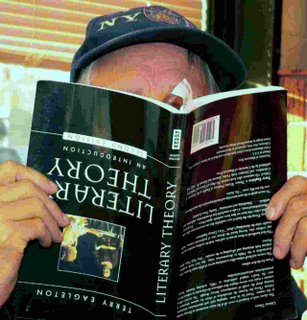Booksellers Do Not Have All Their Bases Covered
Between finding a book and selling a book, the preservation and the display of a collection of books is an integral part of the bookseller's trade. As an important part of the trade in books, apart from the title catalog or the arrangement of displays inside his or her boutique, the bookseller also narrates stories about and educates the public regarding diverse aspects of literate culture in order to keep people interested in books; books as both artifacts of a common heritage and as worthy of their purchase price.
Despite the niche markets and categories in the book trade, booksellers elect on their own to sell books - they self-select with few gatekeepers or hurdles to jump over in becoming a bookseller. Yet, having learned their business, bookshop owners and effective dealers can rightly claim that they serve as cultural guardians and, in their realm, sentries for how people imbibe in culture and traditions through written and recorded language.
Despite how vaunted some of this description may be, how rightly or wrongly it fits the trade as a whole, book dealers as a class exercise little social or economic power and enjoy less and less social status (along with the medical profession one should add).
On an entirely different plane, each level of government, in its turn, exercises a greater and growing power over the professions and commerce. 
In response to this news, IN THIS POST, j godsey at Bibliophile Bullpen remarked,
I'm starting to get the serious feeling that our society as a whole is distrustful of anyone in possession of voluminous numbers of books, regardless of whether they are just a collector or truly a professional bookseller.
I share those feelings. I am confident the author of those remarks was much angrier than the words sound after reading the post, at least I am angrier than my words!
Why am I controlling my anger? Because I think that all of us in the book trade, now in touch with one another by email and on several websites, need to pool our thinking and our resources to come up with alternative solutions to protect the used and antiquarian booksellers from the most savage tendencies that are threatening the book trade from on high and from three sides.
It's impossible to anticipate what the future solutions will be. Will the proposed solutions favor senior dealers with proven track records or favor the new entrants, who for the first time recently uploaded a ton of books to the Internet vendors' sites? Are scholars more in need of protection than house-bound retirees earning extra cash. I do not have an answer, yet.
The simplest solution to the problem of the bankrupt bookstore I can think of is to have the means to truck away the stock in documents to a safe locale before the landlord or the local mayor hauls the entire stock to the dump. Something simple like that and something direct. I am convinced that we need to face such situations as a book-trade-wide challenge.
I have read a few posts on interesting blogs about photo-documentary projects to image bookstores across the North American continent. That is fine and good. But wouldn't it be ideal to have confidence that what happened to Paul Saindon, shown (below) standing before the Saint-Nicéphore landfill site with nearly his entire bookstore amidst the rubble . . wouldn't it be ideal to have some assurance that such a fate as this will not befall any one of today's bookstores shown in the photos with their doors open?
I can just see the 12-wheel tractor-trailer rig rolling down the Interstate with the logo emblazoned on the side: 'Another Bookstore Saved by the ASBBASN (whatever that means)!
(
In the spirit of a personal blog, but not to sound maudlin:
As I type these words, I am listening to a privately recorded 33 1/3 vinyl of a religious women's choir from Rwanda. The phonograph record was cut in a Montreal studio for a Catholic religious order. There is a photo of the choir members and the names of the arrangers and technical notes are printed on the record's sleeve. The music is beautiful.
I rescued (have not yet catalogued) this disque from a pile of familiar commercial LPs at a junk emporium. You can fill in your own blanks regarding how precious these songs may be as personal artifacts - for someone who survived the Rwanda genocide more than a decade and a half ago.
I keep asking myself: "What records of our culture were destroyed when the Saindon collection was destroyed?")



No comments:
Post a Comment